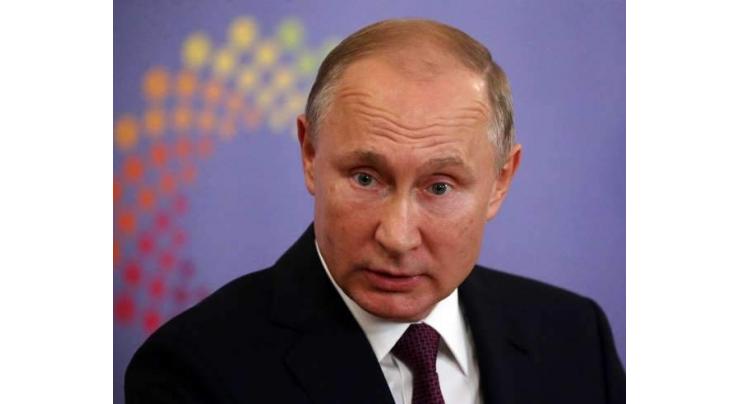
Majority Of Montenegrins Would Welcome Putin's Visit To Country - Opposition Leader
Faizan Hashmi Published January 17, 2019 | 10:33 PM

The majority of Montenegrins consider Russian President Vladimir Putin to be the most popular politician and would be pleased to welcome him in their country, Milan Knezevich, one of the leaders of Montenegro's opposition Democratic Front (DF) Alliance, told Sputnik
Earlier on Thursday, Putin arrived in Belgrade for a visit at the invitation of his Serbian counterpart, Aleksandar Vucic. Serb politicians from other Balkan countries were invited to one of receptions at the Palace of Serbia, which houses the government. Knezevich is among such guests.
"This is a great historic moment not only for Serbia, but for the entire Serbian people, wherever they live in the Balkans. President Putin's visit is a symbolic message about the inextricable ties between Serbia and Russia. I am sure that Mr Putin will be greeted with the same hospitality in Montenegro, and I hope that the Russian president will visit Montenegro as soon as possible and get the same fraternal and friendly reception," Knezevich said.
He noted that he as well as other guests would hardly have the opportunity to talk with Putin at length.
"We would like to tell him that the majority of Montenegrin citizens see him as their sincere defender, ally, friend and brother, and according to the latest public opinion poll, he is the most popular politician in Montenegro," Knezevich added.
During Putin's ongoing Serbia visit, the two leaders are expected to sign over 20 bilateral documents, related to foreign policy, energy, industrial cooperation, railway infrastructure, social policy, education, digital technologies, innovations, and space industry.
Related Topics
Recent Stories

HEC reviews curricula for environmental sciences degree programme

ICC Asia looking forward to an action-packed Asia Cricket Week

Yuvraj Singh named ICC Men’s T20 World Cup 2024 Ambassador

Greece hands Olympic flame to 2024 Paris Games hosts

Two Kyiv hospitals evacuating over feared Russian strikes

World must act on neurotech revolution, say experts

Charles & Catherine's cancer diagnoses

Champions Alcaraz and Sabalenka through in Madrid Open

King Charles to resume some public duties during cancer treatment: palace

US defense chief announces $6 bn in security aid for Ukraine

Heavy rains cause damage to Spezand-Taftan railway track

Woman stabbed in Israel, attacker killed: police
More Stories From World
-
NFL will allow players to wear Guardian Cap helmets in games
2 hours ago -
Football: German Bundesliga table
2 hours ago -
Football: Italian Serie A result
2 hours ago -
Football: German Bundesliga results
2 hours ago -
US troops to leave Chad in second African state withdrawal
2 hours ago -
Plastics pollution may be solved without production cap: Canada minister
2 hours ago
-
Biden stalls on menthol cigarette ban fearing Black vote backlash
2 hours ago -
Champions Alcaraz and Sabalenka through in Madrid Open
2 hours ago -
6,000 French police to welcome Olympic torch amid bonus boost
3 hours ago -
Taiwan hit by several quakes, strongest reaching 6.1-magnitude
3 hours ago -
'Ballistic' Bairstow stars as Punjab pull off record T20 chase
3 hours ago -
Tennis: ATP/WTA Madrid Open results - 2nd update
3 hours ago